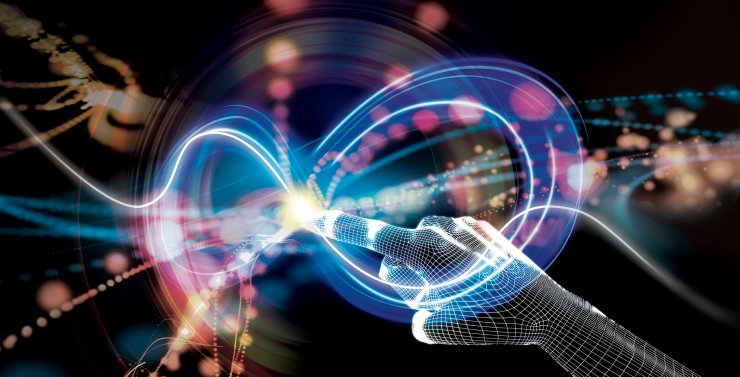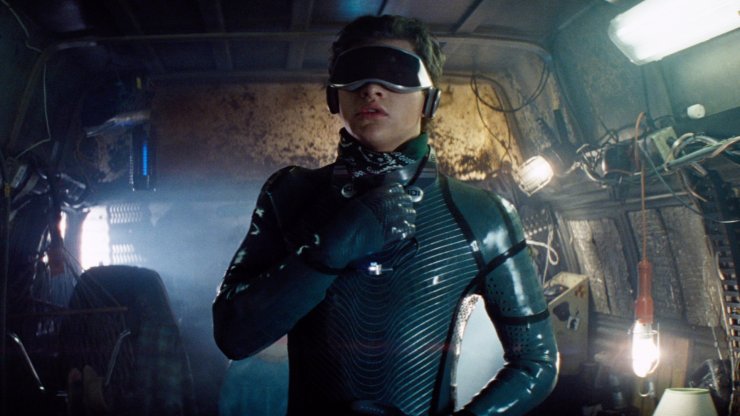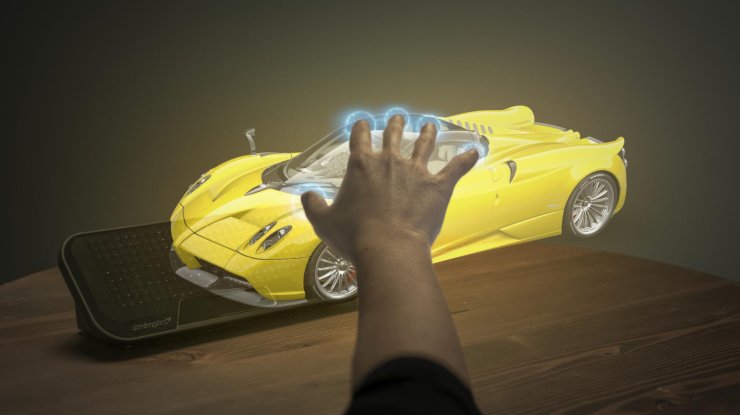At Ultrahaptics, Bristol, developers are working to explore the vast capability and potential of haptics in the game industry.
What is haptics all about?
Haptics is extremely fascinating, but this might be an unfamiliar word at first. Haptics is basically any interaction related to communication through touching. When it comes to the applications of haptics technology, the simplest example is your smartphone. From how it communicates with you via touching screens to how you can feel there's a notification when it vibrates, it's all about haptics.

In terms of applications in game, the first console that is applied with haptics technology is Nintendo 64 Rumble Pak and since then more and more game consoles have it integrated. While this seems like a little add-on, it is more related to your game experiences than you might think. Interestingly, our nervous system can perceive touching really well, so well that it revolutionized gameplay. For instances, our brain can perceive different frequencies of vibrations from controllers when we control a car in a driving game and further demonstrate the difference of the street's texture and terrain. The touching simulation alone may not help you experience better but when combined with the game's graphics, the sound, and physics, it appears to be extremely realistic.
Watch how haptics is integrated into game controllers:
Nowadays the media has some great ideas about the capabilities of haptics with some great example namely the Ready Player One franchise. If you have watched the movie, you can see that the players in there can fully interact with their character in virtual reality through a special suit that is integrated with haptics technology. The extent of sensing is incredible when they can feel the same what their characters feel such as temperature or even pain. Isn't it cool? Fact is, we are nearer to that reality than you might think.

How Ultrahaptics is working
In a developing technology of haptics, Ultrahaptics appears to be one of the most significant pioneers and their technology is marginally unique in relation to the innovation portrayed in Ready Player One. In particular, a camera will track your hand's movements and a special speaker system will produce ultrasound that we are unable to hear to trigger the atmosphere around you to vibrate so that you can feel it through your skin.
While this sounds simple, it is certainly not easy to create. According to Adam Harwood, a member of the researcher team, in the primitive version of their technology, they had to spend a whole day just to calculate enough to render just a single point of the virtual reality. However, things get much better now and in their newest version called Stratos, all the calculations are automatic and only take milliseconds.

Wait until you realize that it's the mind, not simply the extravagant tech, that completes a ton of the truly difficult work. According to Tessa Urlwin, a PR specialist of Ultrahaptics, sometimes strange or impossible sensations happen to those who have tried experiencing the tech. She said that when she was playing with fireballs in the demo, though the system didn't create any heat she still felt hot in her own hands. Harwood had an explanation to this and that was when 2 different senses feel different information, one of them can be overwhelming and thus affects the other. For example, our eyes are the most reliable source of information (at least that's what our brain perceives) so whatever we see can make other senses including skin feel the same thing.
Though when talking about recreating the feelings of pain, Harwood said that they hadn't put too much effort into it despite the fact that it can be really helpful especially in science. Although they do make effort to use this tech to aid people who have special physical demands. Stevie Wonder once came and tried their tech - a bus stop button that appears just in front of you when you reach your hand out.
And finally, when it comes to how haptics technology can be applied to video games, it is even more intriguing. Harwood revealed that they were expecting to cooperate with a very large European game creator. Ultrahaptics even managed to cooperate both haptics and VR to create an extremely realistic experience.
They created a demo game which is a combination of mid-air haptics and VR. While the VR created a vision in which players are equipped with some magical weapons to deal with disgusting insects that were trying to attack, the haptics lets the player create different types of spells using those weapons to kill those enemies. The visual effect of the VR combined with the real feelings and emotions that haptics created was extremely realistic and enjoyable, as you can imagine.
Watch how Ultrahaptics' game technology performs:
The future of haptics in video games
Obviously, haptics or in particular our sense of touching plays a great part in how we feel and sense everything around us. From skin-to-skin therapy, petting friendly animals to cuddle with each other or put your hand in where you are painful to reduce the pain instinctively, touching does not only create emotion or feeling, it even creates bonding and, to some extent, love. Just imagine what if this technology is integrated into a wonderful game in which we will even feel our emotions toward a virtual character.
Be that as it may, it can be a problem also. When we interact with a certain character in the game through VR and haptics simultaneously, we interact with them through our eyes, ears, skin, our most sensitive senses. As a result, our instinct makes we grow a strong emotion toward them. While this sounds interesting, it raises a question that is it reasonable to think of an imaginary, virtual-reality figure that way? Somehow it messes with our instinct and the barrier between the reality and virtual world becomes even more fragile, more than now.
Having said that, experiencing a future with this promising technology is surely much much interesting and I'm pretty sure that these concerns are overshadowed by its attractiveness, especially when games are integrated with well-written narratives, it can be lively and reach out of the plain screen to our heart, literally.
















Comments